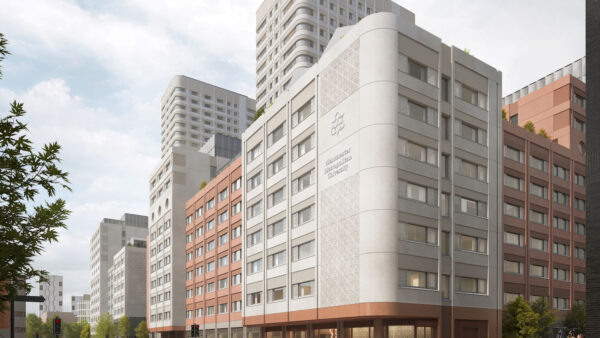
Developers have six weeks to commit to fixing unsafe cladding on high rises or be banned from the market.
Housing minister Michael Gove revealed his plans yesterday in an interview with the Sunday Times in which he blamed the government for the Grenfell Tower tragedy.
A developer remediation contract will compel developers to strip flammable cladding and fix other fire risks in buildings over 11m high over the next decade.
Under the contract, developers will commit £2 billion or more for repairs to buildings they developed or refurbished over the past 30 years.
Together with the Building Safety Levy, this means they will pay an estimated £5bn to make their buildings safe.
Developers will also need to reimburse taxpayers where public money has been used to fix unsafe buildings.
Those that don’t sign up will no longer be able to operate. A ‘responsible actor scheme’ will be set up shortly that will block developers not signed up to the contract from getting planning or building control approval.
Gove told the Sunday Times if a company cannot maintain a home in “safe conditions” already built, it should not be allowed to build new ones.
He said it was “completely wrong” that people who hadn’t done anything wrong were suddenly landed with huge repair bills.
Persimmon group chief executive Dean Finch said his company intended to be the first developer to sign the contract. He said: “Persimmon was proud to lead the industry two years ago with our original pledge to protect leaseholders.
“Since then, we have been making good progress on remediation and aim to be on site on all developments by the end of the year.”
Government to blame
Gove said the government’s “faulty and ambiguous” guidance over the cladding rules led to the tragedy that killed 72 people, 18 of them children.
He told the paper: “There was a system of regulation that was faulty. The government did not think hard enough, or police effectively enough, the whole system of building safety. Undoubtedly.”
Gove said this, “allowed unscrupulous people to exploit a broken system in a way that led to tragedy”.
He also laid blame with those who made the cladding products, carried out the work, and signed it off.
He put faith in the inquiry to find those responsible. “There are sins of omission and sins of commission. There’s neglect and a failure to effectively get the system in place, which is one thing.
“And then there is an active willingness to put people in danger in order to make a profit, which to my mind is a significantly greater sin.”
Gove also said the leasehold system was an “outdated feudal system that needs to go”, and that he was determined to push through reforms before the next general election.
Comments
Comments are closed.












In the not too distant past architects were required to take their proposals for new build and refurbishment to the fire prevention officer prior to submission to building control, this was scrapped by the Blair government. With regard to Grenfell the proposals should have been submitted to building control who should have assessed the fire risk therefore there has been a failure at local government level and for the fire officers to have allowed a building of such a height with a single staircase, defective fire doors, defective lifts and a smoke vent at the top of the means of escape which failed was an accident waiting to happen. Annual checks should have been carried out by the owners and the fire officer which if that had occurred ( the building should have been closed down ) this disaster could have been avoided.
As above
At last some one in government is doing something like right regarding the cladding problem, disaster and what other words you want to use.
In the 1970’s many high rise buildings were erected and none had a cladding fire risk as at the time the regulations specified Class 0 spread of flame ie non combustible for the external face and any windows had to be spaced a certain distance apart .There were fires in flats over the years but because of the construction the fire did not spread up the building or to an adjacent flat . Building control was under the control of the local authority and there was a higher standard of expertise for high rise buildings .All construction drawings had to be approved prior to start on site .In the 1980’s the building control standards were lowered and then lowered further after 2010 and private firms were alowed to undertake the duties of Building control . Hence the lack of sufficient standards and the lack of independant control The industry needs the standards of the 1970’s
The developers are not going to change the habits of a lifetime, and Gove knows this. Those who don’t want to take responsibility and sign up will just fold up their businesses, and restart the next day as new entities and dodge the sanction. Only the biggest companies who trade on their name will cough up.